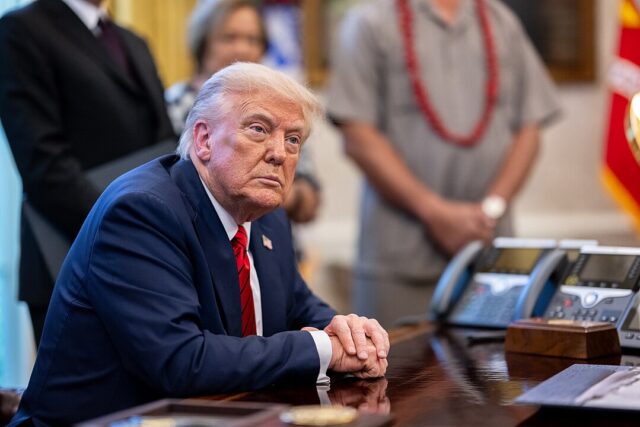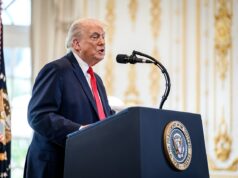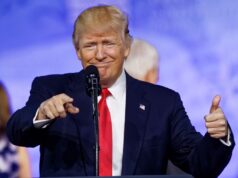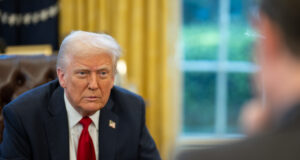
The Trump administration has escalated its campaign against Venezuela’s authoritarian leader, Nicolas Maduro, and has secretly authorized the C.I.A. to conduct covert action in the country, the New York Times reported on Wednesday, while citing United States officials.
The authorization is the latest escalation in the Trump administration’s intensifying pressure campaign against Venezuela. For weeks, the U.S. military has been targeting drug boats off the Venezuelan coast. American officials have been clear, privately, that the end goal is to drive Maduro from power.
The new authority would allow the C.I.A. to carry out lethal operations in Venezuela and conduct a range of operations in the Caribbean.
The New York Times reports:
The agency would be able to take covert action against Mr. Maduro or his government either unilaterally or in conjunction with a larger military operation. It is not known whether the C.I.A. is planning any operations in Venezuela or if the authorities are meant as a contingency.
The development comes as the U.S. military is planning to escalate its ongoing operation, drawing up options for President Trump to consider, including strikes inside Venezuela.
The scale of the military buildup in the region is substantial: There are currently 10,000 U.S. troops there, most of them at bases in Puerto Rico, but also a contingent of Marines on amphibious assault ships. In all, the Navy has eight surface warships and a submarine in the Caribbean.
The new authorities, known in intelligence jargon as a presidential finding, were described by multiple U.S. officials who spoke on the condition of anonymity to discuss the highly classified document.
The Trump administration’s strategy on Venezuela, developed by Secretary of State Marco Rubio, with help from John Ratcliffe, the C.I.A. director, aims to oust Maduro from power.
Mr. Ratcliffe has said little about what his agency is doing in Venezuela. But he has promised that the C.I.A. under his leadership would become more aggressive. During his confirmation hearing, Mr. Ratcliffe said he would make the C.I.A. less averse to risk and more willing to conduct covert action when ordered by the president, “going places no one else can go and doing things no one else can do.”
President Trump ordered an end to diplomatic talks with the Maduro government this month as he grew frustrated with the Venezuelan leader’s failure to adhere to U.S. demands to give up power voluntarily and the continued insistence by officials that they had no part in drug trafficking.






Need
HUMANIT
Drones
Space spies
Undercover.
Spec Ops
Not very “covert” if it gets spread like Fang Fang.